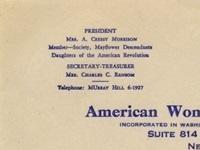This lesson was designed for students to learn about the Red Scare portion of the Cold War era in American history. Students will begin by reading two publications: one with anti-Communist sentiments, and one with anti-McCarthy leanings. Both authors introduce a particular concept of America's strengths and purpose, which they then accuse their opposition of violating. Students will examine the authors' motivations in writing these editorials and compare/contrast their arguments. They will then use the knowledge gained in class discussion to inform their arguments for a mock trial between Senator Joseph McCarthy's camp and those accused of Communist ties.
If time permits, the teacher may choose to conclude the lesson by showing the 2005 film Good Night and Good Luck, which demonstrates American journalists' responses to the McCarthy hearings and raises questions of the responsibility of the press in interrogating the political establishment.


